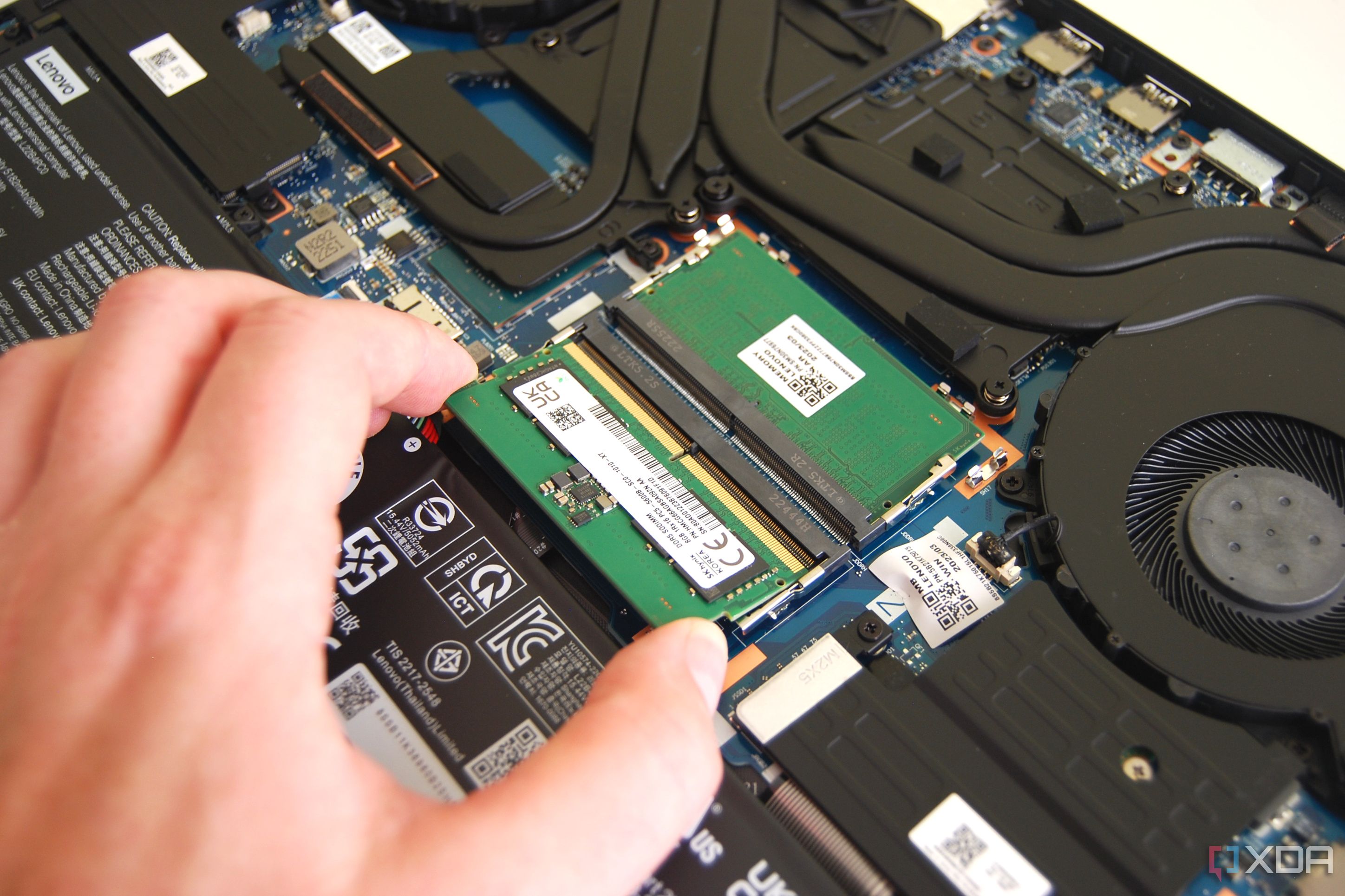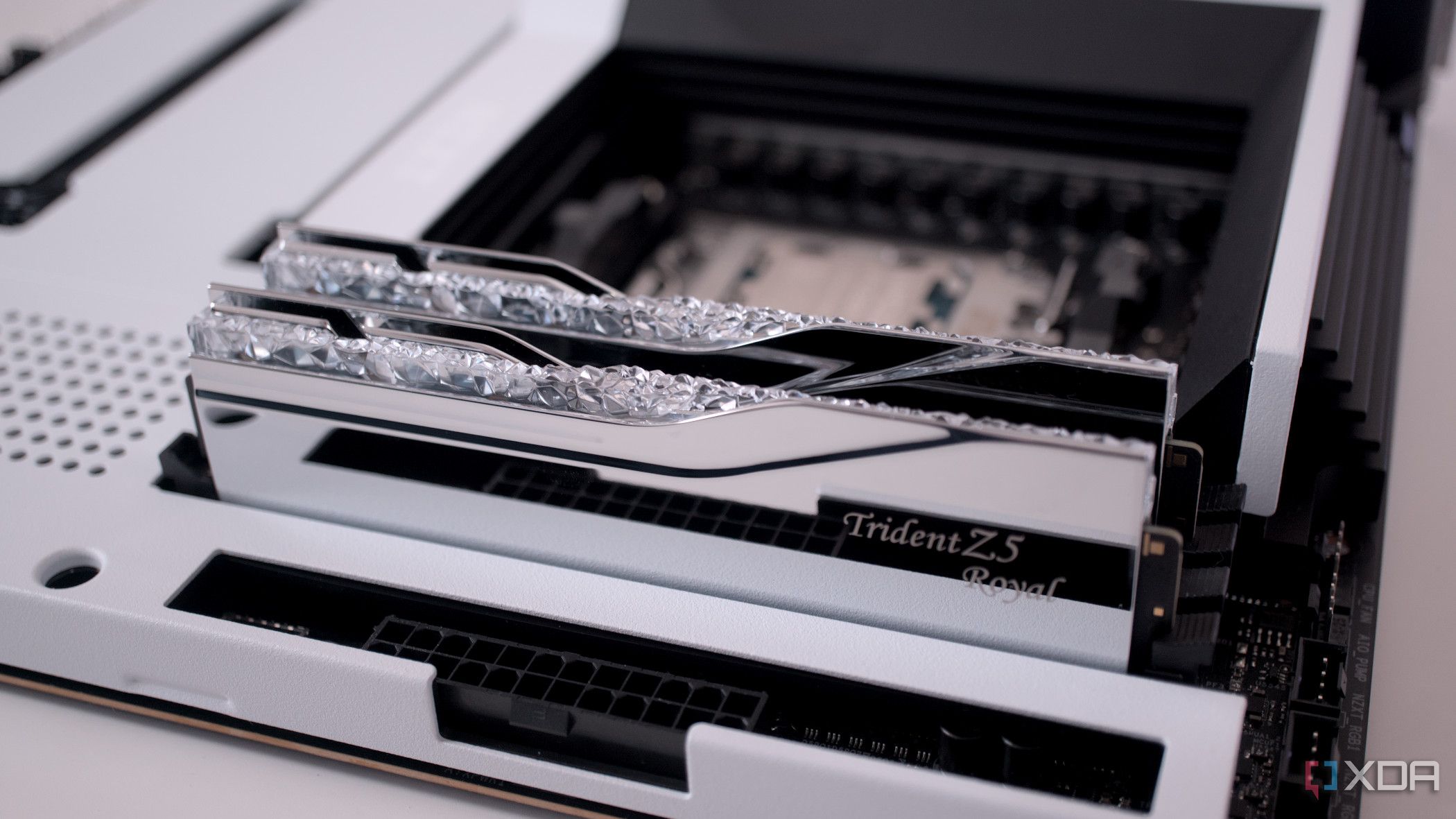When I built my first gaming PC in 2013, I opted for 16GB of RAM, which was considered overkill back then. Even some of the most demanding games at the time—like Crysis 3 and Battlefield 4—didn't recommend more than 8GB of RAM. However, that initial investment paid off in the long run because RAM was never an issue for my PC, even in 2020. The only part I upgraded in the seven years I used my PC was the graphics card—I had to switch to a GTX 1060 because the GTX 680 just wasn't cutting it anymore
With the same mindset, I dedicated to go overkill on my RAM again when I built a new PC with the RTX 3090 in 2020. This time, I went with 64GB of RAM, thinking it would be necessary in 4-5 years. Fast forward to 2025, and I've yet to come across a modern AAA game that recommends more than 32GB of RAM. Even though I'm convinced memory capacity won't be an issue for the next few years, I still feel like I might need to upgrade my RAM sooner rather than later because I overlooked some other important factors when I bought this kit.
2:06

Related
How much RAM do you need in your computer?
Let's explore how much RAM you need in your computer in order to properly tackle a variety of tasks.
3 64GB of RAM is still overkill for gaming
Even in 2025, I can't find AAA games that recommend more than 32GB
Like I said earlier, I assumed AAA games would demand more system memory a few years after I built my PC, but that still hasn't happened in 2025. Aside from a couple of exceptions, like Indiana Jones and the Great Circle and Microsoft Flight Simulator 2024, most games still recommend just 16GB of RAM. That's not to say you won't benefit from having 32GB—you will see noticeable improvements, like fewer stutters, smoother frame pacing, and quicker load times. But going all the way to 64GB doesn't make things even better.
I agree that 64GB of RAM may be necessary today for professional workloads like high-res video editing, 3D rendering, virtualization, and running LLMs locally, but none of that is relevant to my daily usage. Yes, I do edit 4K footage every now and then, but I mostly spend my time browsing the web, writing articles for XDA, and gaming. Even while gaming with multiple Chrome tabs, Discord, and Spotify running in the background, my PC rarely exceeds 25GB of RAM usage. Honestly, I think I would've been perfectly fine with just 32GB of system memory, even today.
2 RAM speed and timings matter more
I should've known faster DDR5 RAM kits were on the horizon
DDR5 RAM modules started rolling out about a year after I built my RTX 3090 rig. If I had known that at the time, I would've happily settled for a 32GB DDR4 kit and treated it as a stopgap until the faster DDR5 modules became widely available in 2022. That's because RAM speed and timings matter more than the capacity beyond a certain point. For instance, if your PC already has 32GB of RAM and you play games that use 16GB at most, a faster RAM kit would improve the performance—unlike doubling the capacity—especially at lower resolutions.
That's because games become more CPU-bound at high frame rates, and in such scenarios, having faster RAM with tighter timings (lower CAS latency) can give your FPS and 1% lows a noticeable boost. This makes a real difference for me, especially since I mainly play competitive games like Valorant and Apex Legends on a 360Hz monitor. Moreover, faster DDR5 RAM also improves system responsiveness, from quicker alt-tabbing to faster load times in productivity apps like Premiere Pro and Photoshop. Unfortunately, when I bought my 64GB RAM kit, I overlooked the fact that I was locking myself into the aging AM4 platform.
1 More RAM can affect overclocking stability
XMP and EXPO profiles aren't always stable when using 64GB of RAM
I had no trouble enabling the Intel XMP profile when I had a 16GB kit in my old PC. I didn’t have to tweak the timings or lower the frequency—it just worked and remained stable 24/7. Even when I upgraded to four 16GB sticks in my 3090 rig, I was able to get the AMD EXPO profile to work without any stability issues. However, when I swapped the CPU for a 5800X3D last year, the same EXPO profile suddenly became unstable for everyday use. I started running into random desktop freezes, game crashes, BSODs, and occasional boot failures.
After scouring the internet for solutions, I realized that high-density memory configurations place more stress on the memory controller integrated into the CPU. This meant that I had to deal with reduced stability at higher frequencies like 3600MHz, which my RAM kit was rated for. I spent several hours tweaking voltages and timings, but in the end, I had to lower the frequency to 3200MHz to resolve all the issues I faced. So, if long-term stability is your priority, it's best to avoid populating all four DIMM slots—especially when running high-speed memory.
Think twice before you double your RAM
At first, upgrading to 64GB of RAM seemed like an obvious decision. After all, who wouldn't want to future-proof their PC and stay ahead of the curve? But after using a PC with 64GB of RAM for nearly half a decade, I've come to realize it's one of those cases where more doesn't always mean better. I'd get more real-world benefit from switching to faster DDR5 memory—even if that means dropping to 32GB, which has become the sweet spot for most modern builds. I'm not saying 64GB of RAM is pointless, but my workload simply doesn't need that much memory—at least not yet. So, before you rush to double your RAM, take a moment to evaluate how you actually use your system, or you might end up regretting the upgrade like I did.
.png)












 English (US) ·
English (US) ·